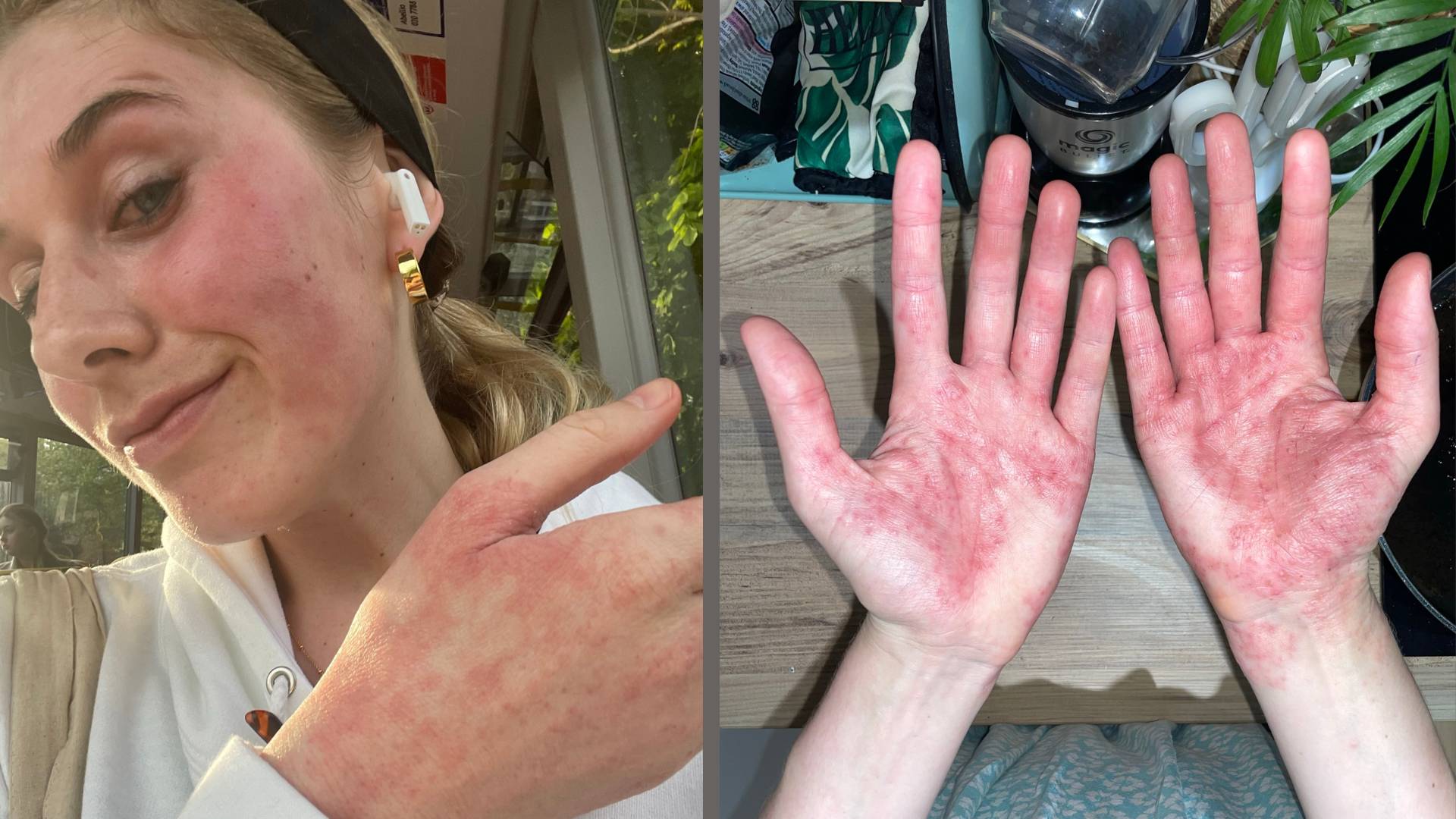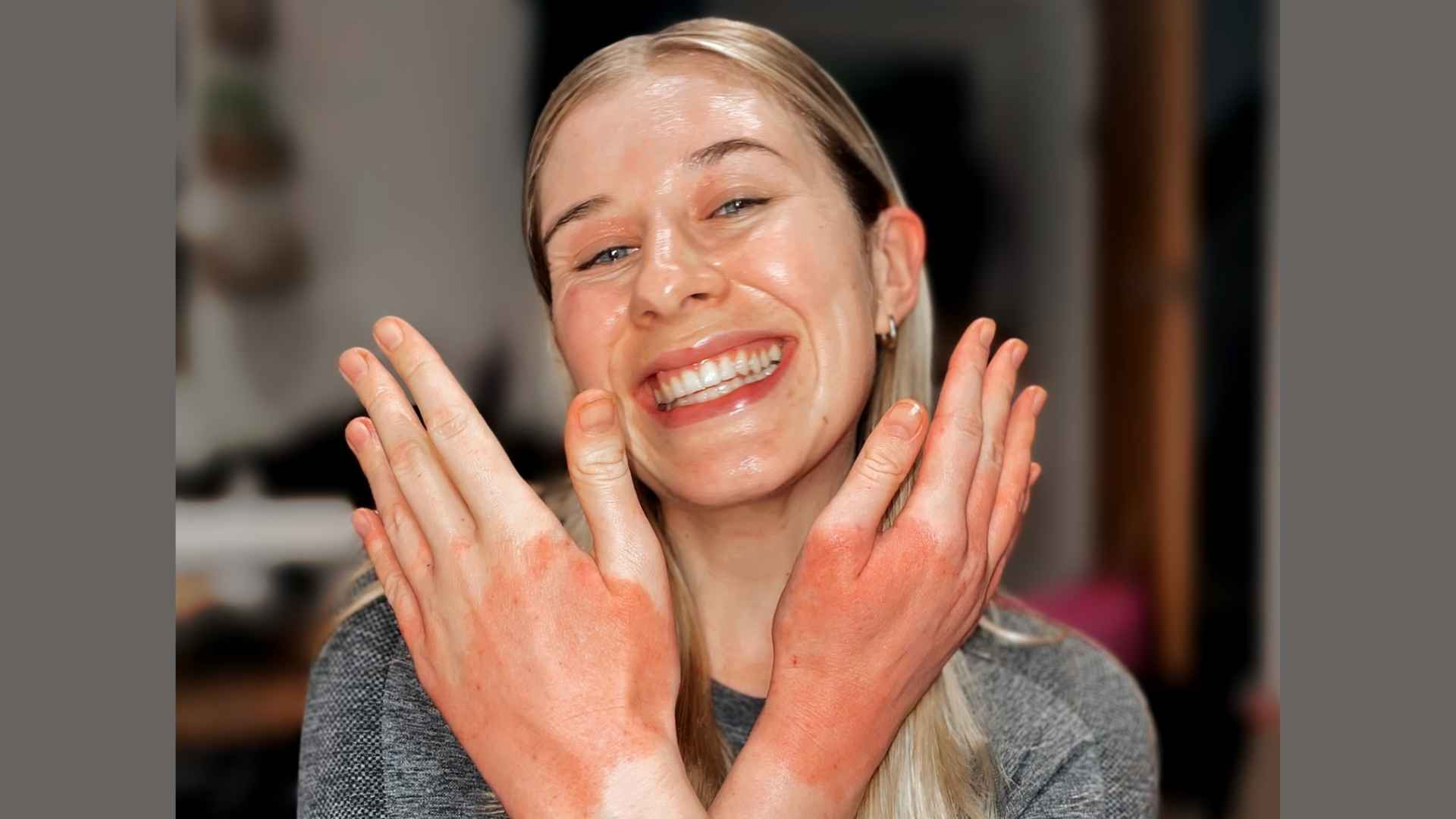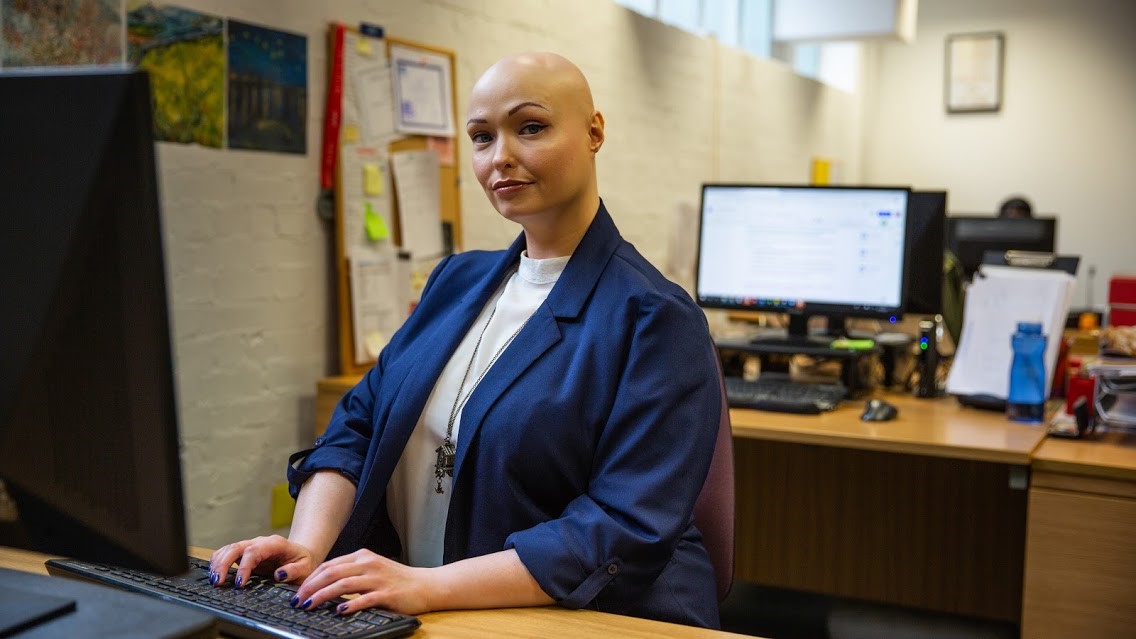I’ve had eczema for as long as I can remember, and I’ve always been the kid who would run through a field, climb a tree or splash in a puddle and break out in hives.
Some of my earliest memories are of me screaming as I got into an oat bath, or of my mum pinning me down to apply my prescription creams.
For those who don’t know, many people’s eczema is allergy-related, so, sadly, what works for me, won’t always work for others, and vice versa. This is hard mentally because there are lots of products out there promising a cure. Sadly, because eczema isn’t a “one-size-fits-all” situation, it can feel like a very isolating condition. Growing up, I never had any friends with eczema, so again – I felt quite isolated.
Over the years, I always felt like I had to hide my skin as I felt conscious of it. The long sleeves in summer, the foundation on my legs in PE, and the missed nights out… it’s safe to say eczema has always been a massive trigger of anxiety for me.
In fact, from my experiences, eczema and anxiety go hand in hand. Loss of control is one of the most common triggers for anxiety and sadly for us itchy people one of the biggest parts of our condition is loss of control of our skin.

Sometimes I think eczema would be easier to deal with if it was constant and didn’t change from day to day. My skin can go through periods of looking amazing and glowy. Then the little anxious voice in my head begins to whisper “this won’t last forever” and I start to worry a flare will erupt as soon as I start to get comfortable in my unblemished skin.
I found therapy helpful for anxiety, which was triggered by loss of control of my eczema, as well as being diagnosed with alopecia. I’ve done Cognitive Behavioural Therapy which has helped me a lot, and I’ve talked through things I’d never discussed with anyone before, which has helped me with acceptance of my condition.
Eczema has taken away my confidence at times. It’s been the reason I don’t wear certain things or attend an event. It’s been the reason I’ve had a dire mental health day or taken extenuating circumstances claims at university. It’s even been the reason I couldn’t physically straighten my body or move without my skin ripping open and bleeding.
At university I had to take extenuating circumstances on coursework as I couldn’t physically type or use my fingers without extreme pain. I’ve also previously had to take time off work for the same reasons. I have been very lucky in the last few years to have such understanding and supportive work environments but when I was 16 and in my first few jobs, I wasn’t so lucky. Probably because I wasn’t confident enough to speak up about my eczema like I am now.
Other people’s reactions to my eczema have also been challenging. I’m sure that I’m not the only one who’s pretended it’s sunburn to avoid more questions.
I’ll never forget when I was a lifeguard at university. I sat on a poolside in 36-degree heat with leggings and long sleeves underneath my lifeguard uniform, as I felt embarrassed of others seeing my flared skin.
Hiding my skin was easy when my flares were small, but when my eczema moved to more visible places, I decided I wanted to tell people what it was before they could ask. This was when I started sharing my skin journey online.
Next time you’re flaring and you notice it’s getting you down, instead of reaching for a new product, try reaching out and asking for help.
Sharing my journey, I finally felt like I belonged, and others in hiding would message me and say I’d inspired them to share their skin journey too. As my confidence grew, I launched a community platform on Instagram and a podcast. I formed instant connections with random strangers on the internet over itchy stories and that’s when I realised eczema wasn’t something to be hidden or embarrassed of. It was way more common than I knew. I’ve since built such an inclusive community where people with any kind of itchy skin complaint can find people who understand their experiences. Most importantly for me, I’ve found my confidence and learned to love my skin. I’m full-on running around and flaunting my flares – instead of hiding!
When it comes to eczema care, shared experience has helped me way more than all the topical treatments. Next time you’re flaring and you notice it’s getting you down, instead of reaching for a new product, try reaching out and asking for help. The community I’ve grown online is here for you, and so is Changing Faces, with their support and information line, online group support or one-to-one counselling sessions to name a few of their free services for people with a visible difference.
When it comes to dealing with negative reactions to my eczema, I’ve realised that the very second you own your ‘flaws’, you become untouchable. No one can hurt you, because you are acknowledging your insecurities and taking control of your narrative. It’s not poor you – it’s powerful you.
And did you know, 60% of people in the UK currently have a skin condition or have previously had a skin condition. So hey, guess what? Skin conditions are normal! More people have them than don’t.
The more we show our skin conditions, the more people will learn about them. Gradually, less questions will be asked, less staring will happen. But for now, get the support you need to own the skin you’re in.

